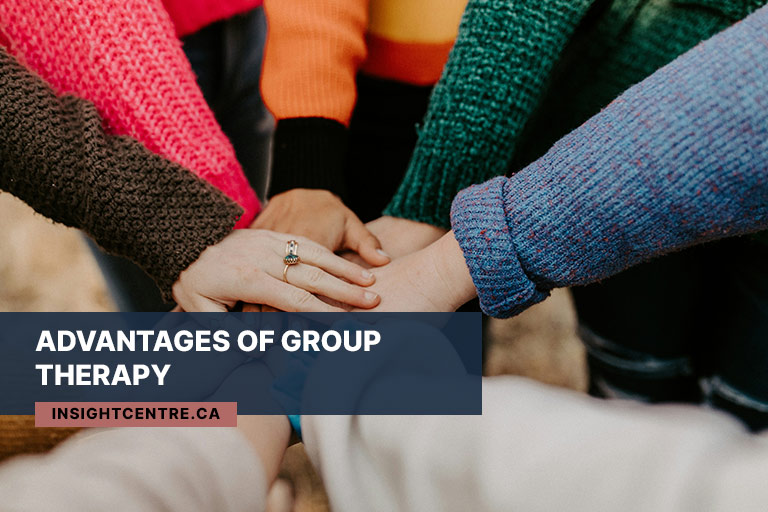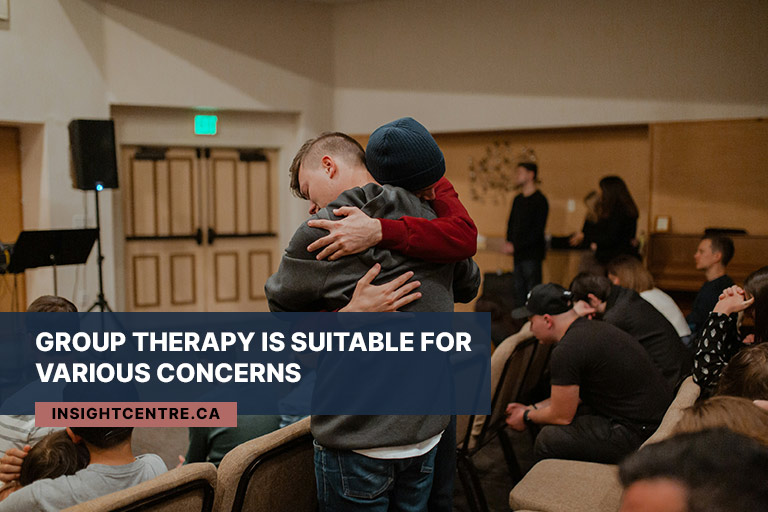
Group therapy, a powerful therapeutic approach, has garnered increasing recognition and acceptance for its multifaceted merits. At its core, this approach provides individuals with a unique platform to immerse themselves in an environment brimming with empathy and understanding, propelling them on a transformative journey towards personal growth and healing. It is a safe haven where members can not only release their own burdens but also comfort and assist others facing comparable challenges.
Let’s examine group therapy’s many and how it can offer social support to decrease in stigma associated with mental health issues.
Group therapy involves a trained therapist leading a group of individuals who come together to discuss their concerns and challenges in a safe and confidential setting. It’s important to understand that group therapy is not just about talking; it’s a process that encourages members to actively participate and provide support to one another.
In a group therapy setting, participants can address a wide range of issues, such as anxiety, depression, addiction, and relationship difficulties. The diversity of experiences and backgrounds within the group can provide valuable insights and perspectives that may not be readily available in individual therapy.

Group therapy is suitable for a diverse range of individuals who may benefit from the unique advantages it offers. Here are some examples of people for whom group therapy can be particularly beneficial:
The importance of group therapy in mental health is evident for those grappling with various mental health issues, such as depression, anxiety, bipolar disorder, or post-traumatic stress disorder. It provides a supportive environment for sharing experiences and learning coping strategies.
Group therapy is often an integral component of substance abuse treatment programs. It allows individuals in recovery to share their challenges, successes, and strategies for maintaining sobriety with others who are on a similar path.
People coping with the loss of a loved one can find solace in group therapy, where they can connect with others who understand the complexities of grief. Sharing their experiences can help in the healing process.
Couples or individuals facing relationship challenges can benefit from group therapy focused on improving communication and interpersonal skills. It provides a safe space to explore and address relationship dynamics.
Group therapy can be particularly helpful for individuals struggling with social anxiety. It offers a structured setting to practice social interactions, receive feedback, and build confidence in social situations.
Those working to manage anger issues can learn valuable techniques and gain support from others dealing with similar struggles in a group therapy setting.
People with eating disorders, such as anorexia or bulimia, can find understanding and encouragement in group therapy. Sharing experiences and strategies for recovery can be therapeutic.
Group therapy can be a safe space for survivors of trauma to process their experiences, reduce feelings of isolation, and work towards healing and recovery.
Individuals living with chronic illnesses or conditions may benefit from group therapy to address the emotional and psychological impact of their health challenges.
Some individuals may choose group therapy as a means of personal growth and self-discovery. It can offer insights into one’s own thoughts and behaviours and provide tools for self-improvement.

For those who want to build strong social bonds with other people who are facing similar struggles, group therapy is an essential means of achieving this goal. It provides a cure for the pervasive loneliness that often accompanies life’s hardships by fostering an unwavering sense of community. Opening up and listening to other people’s stories while keeping an open mind gives comfort and confidence, creating a safety net of constant support.
Group therapy provides participants with unrestricted access to a diverse range of perspectives and fresh insights into their personal struggles. Experiencing the diversity of other people’s lives provides a new lens through which to examine own matters, leading to a deeper understanding of their complexity.
Group therapy techniques is an excellent means of refining communication skills. Even though there may be some initial anxiety, the experience of exchanging ideas and feelings in a group environment gradually shapes the skills necessary for more efficient communication and well-articulated self-expression – a wealth of abilities that easily translate into a variety of real-world situations.
Group therapy helps people examine themselves and become more self-aware. Participants get deeper insights into the complex web of their thoughts, feelings, and behaviours by considering their own contributions to the group dynamic and exposing themselves to the frank feedback of their peers.
Group therapy provides a safe sanctuary where individuals can practice the coping mechanisms and skills they have learned in treatment. Through experience learning and navigating daily obstacles, this practical baptism by fire becomes invaluable in enhancing mental well-being.
Compared to individual therapy, group therapy frequently provides a more economical route. Because of its price, it’s a sensible option for people who need expert help but are also mindful of their money.
Engaging in group therapy actively creates a framework that progressively removes the stigma surrounding mental health. The increasing number of people who freely accept the therapeutic group environment makes it abundantly evident that asking for help is not a sign of weakness but rather of inner strength and determination.
Often, group therapy develops a caring and sympathetic community. A great deal of participants establishes lifelong connections and bonds that extend well beyond the confines of therapy sessions, providing them with a source of ongoing support and comfort as they navigate the winding roads of their own journeys.
Group therapy offers a multitude of benefits, from enhanced social support and different perspectives to improved communication skills and increased self-awareness. If you’re seeking a group therapist in Barrie, Ontario, consider joining Insight Centre Counselling and Psychotherapy. Our experienced therapists are here to help you on your path to healing and personal growth.
Call us at (647) 633-1928 to learn more about our services and schedule an appointment. Don’t let your struggles hold you back — take the first step towards a brighter future with group therapy!
Copyright 2024 Insight Centre | All Rights Reserved | Sitemap | Powered by: Local SEO Search Inc.